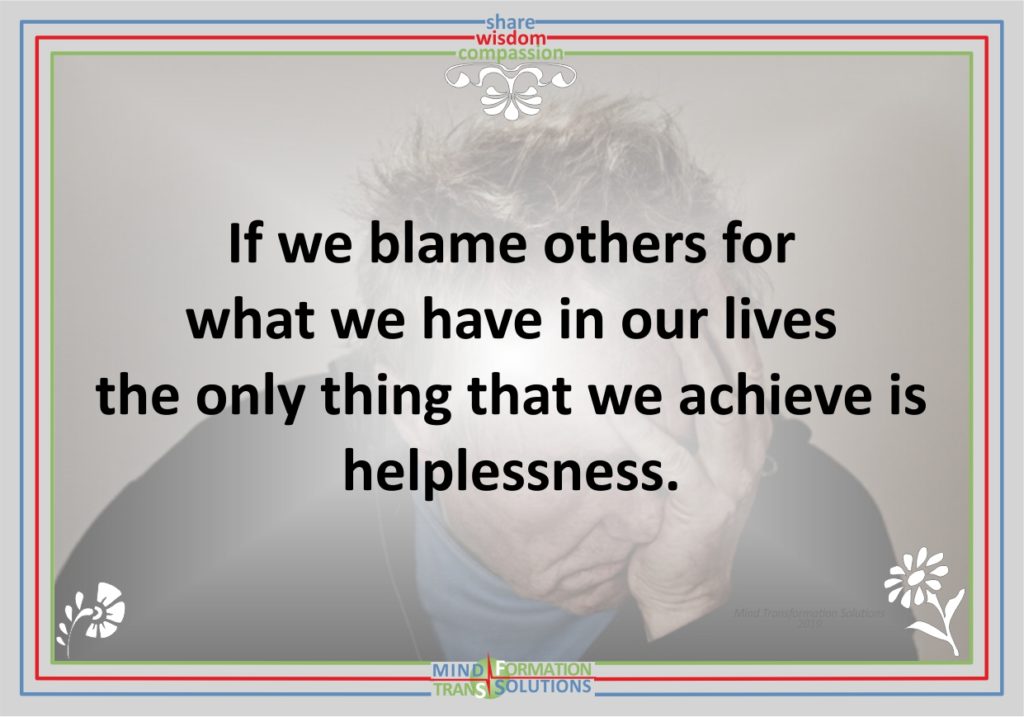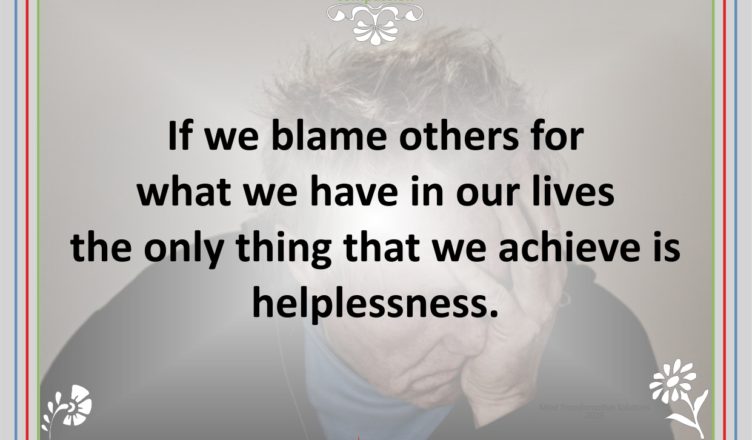
Assigning blame, making others responsible for our experiences is an absolutely natural tendency.
We all have this kind of thinking.
If only… our parents, teachers, bosses treated us differently, if only there weren’t fanatical crises or we were born at different times and/or places etc. If only he or she didn’t say or do this or that… our lives could look much better now.
It is even possible that this way of thinking is correct from a logical point of view.
However, notice that at the same time when we think that, we do one more thing: we make others responsible for the way we experience our life.
If others are responsible for our misfortunes these others have to do something to improve our situation – otherwise, we have no choice but to suffer. At the same time, by thinking that way, we at least partially make others responsible for our happiness too.
The problem is, that even if those “others” feel responsible for our lives (usually they don’t), in fact, the only responsible person for our life experience is… ourselves.
By shifting responsibility to others, we transfer to them power over our lives. As a result, we end up experiencing helplessness.
Imagine a situation: during your absence, somebody (you may or may not know who) painted on one of the walls of your living room a truly horrible picture with some kind of stinking substance. You come back home and discover this “piece of art” – what you do? Do you spend the rest of your life, waiting until this someone redecorate your flat? Do you explain to your guests, that it is not your fault that it stinks and looks horrible? Or do you wash the wall and repaint it so you are back to normal ASAP?
And yet, so many people choose to live “in the living rooms” of their minds with horrible pictures of the past that somebody else painted there, waiting for those others to make things right.
Now there is an important question: how far we can go in taking responsibilities for the way we experience our lives? The answer depends on how much power do we want over our lives. The more we make ourselves responsible for our experiences the less control over us we give to others.
Of course, we can say: but surely, we are not responsible for everything – and I am not saying we are.
The point is that we can think that we are. That everything we experience (or not) is a sum total of our conscious and unconscious choices and actions or inactions. This kind of thinking opens up the new possibilities that are normally unavailable to us. Possibilities of learning, taking decisions and actions that are unthinkable without it.
People can always behave badly, there can always be another financial crisis, natural catastrophes or divine retribution. All those things can happen. This is up to us how we respond to them. And our ability to choose our reaction closely correlates with the amount of responsibility we acceptfor for our experiences.
How could we develop this ability to choose the response?
- Allowing others to be the way they are.
- Developing an understanding that a stimulus is just a stimulus to which there are many possible responses.
- Starting with small things were choosing is easy to do, so we can build a new habit of choosing our reactions
With regards
Tom Jagiello
![]()
©Mind Transformation Solutions 2019




